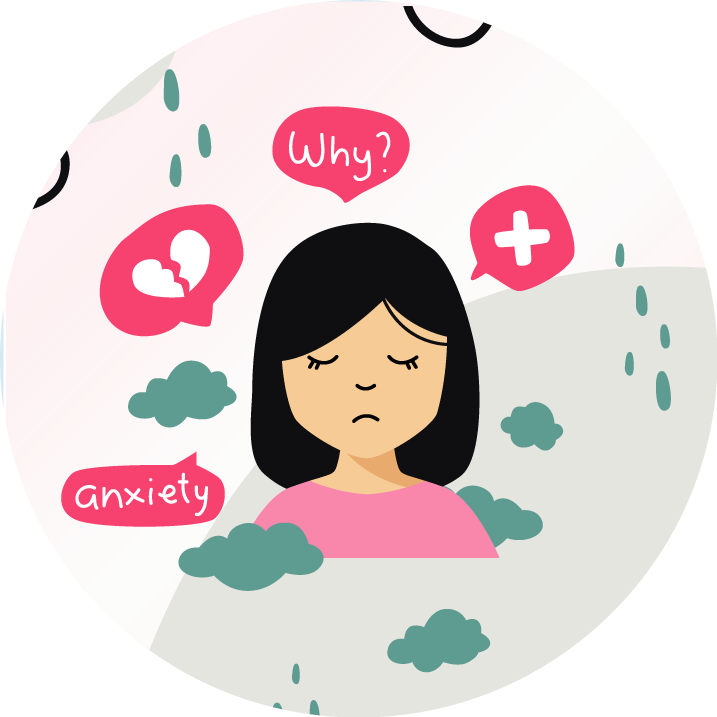How does being married affect Men and Women differently?

How does being married affect Men and Women differently?
April 21 2025 TalktoAngel 0 comments 2131 Views
Marriage is a significant life event that brings emotional, social, and financial changes to individuals. While marriage can provide companionship, stability, and support, its impact varies between men and women due to societal expectations, gender roles, and psychological factors. This blog explores how marriage influences men and women differently in terms of health, emotions, career, and social dynamics.
Emotional and Psychological Impact
One of the most profound ways marriage affects individuals is through emotional and psychological well-being.
- Men:- For men, marriage often serves as an emotional anchor, providing a sense of stability and purpose. Studies suggest that married men report lower levels of stress and anxiety compared to their single counterparts. The presence of a spouse encourages emotional expression and provides a support system during challenging times. Additionally, marriage helps men develop a sense of responsibility and commitment, which can enhance their self-worth and emotional resilience.
- Women:- Women, on the other hand, experience a more complex emotional impact. While marriage provides love and companionship, it can also introduce stress due to caregiving responsibilities and societal expectations. Women often take on the role of emotional caregivers within the marriage, managing the emotional well-being of their spouse and children. This emotional labour can sometimes lead to burnout, particularly if there is an imbalance in the division of responsibilities.
2. Physical Health Benefits and Challenges
Marriage is linked to various health outcomes, but the effects differ between men and women.
- Men:- Research shows that married men tend to live longer and have better physical health compared to single men. Marriage encourages healthier lifestyles, as wives often influence their husbands to adopt better eating habits, regular medical check-ups, and reduced risky behaviours such as excessive alcohol consumption or reckless driving. Married men are also less likely to engage in activities that pose health risks, leading to overall better well-being.
- Women:- For women, the health benefits of marriage are not as clear-cut. While emotional support from a partner can enhance mental and physical well-being, married women often experience higher levels of stress due to household and caregiving responsibilities. Studies indicate that women in traditional marriages may experience an increased risk of stress-related health issues, such as high blood pressure and anxiety, particularly if they bear the burden of household labour without adequate support.
3. Career and Financial Impact
Marriage also affects the professional lives of men and women differently.
- Men:- Married men generally experience career advantages. They are more likely to be perceived as responsible and committed, leading to higher earnings and job stability. This phenomenon, known as the "marriage premium," suggests that married men receive preferential treatment in the workplace because employers associate marriage with reliability and maturity. Additionally, with a supportive spouse managing household affairs, men can focus more on their professional growth.
- Women:- For women, marriage can sometimes lead to career challenges. The expectation to balance work, childcare, and household duties can result in limited career opportunities and wage gaps. Women who take maternity leave or work part-time due to family responsibilities often face difficulties in career development. However, in egalitarian marriages where household responsibilities are shared, women can pursue their careers with fewer limitations.
4. Social and Relationship Dynamics
Marriage significantly influences social interactions and relationships with others.
- Men:- Many married men spend less time with friends and engage less in social activities outside the home. Their primary source of social interaction shifts to their spouse and family. While this can provide emotional stability, it may also lead to isolation if the marriage lacks sufficient external social support.
- Women:- They often maintain close ties with extended family and friends and are more likely to engage in community and social activities. Women typically take on the role of social organisers in the family, ensuring that social bonds remain strong. However, in cases where a woman’s life revolves solely around her marriage and family, she may feel socially isolated if her individual friendships and interests are not maintained.
5. Parenting and Family Roles
Parenthood is a key aspect of marriage that affects men and women in distinct ways.
- Men:- Fathers who actively participate in parenting tend to develop deeper emotional bonds with their children. However, traditional gender norms often place men in the role of financial providers, which can lead to pressure and stress related to work-life balance.
- Women:- Motherhood, while rewarding, often brings more dramatic life changes for women. Many mothers take on the majority of childcare responsibilities, which can impact their personal time, career, and well-being. Women may also experience greater emotional highs and lows due to postpartum hormonal changes and societal expectations of being a "perfect" mother. The division of parenting roles in marriage plays a significant role in determining a woman’s overall well-being and satisfaction in the relationship.
6. Divorce and Its Impact
- Men:- Divorced men often experience a decline in emotional well-being and physical health. They may struggle with loneliness, as their primary emotional support system is removed. Studies indicate that divorced men have higher rates of depression and substance abuse compared to married men. Financially, men may face challenges related to alimony and child support obligations.
- Women:- While women may experience initial emotional distress following a divorce, they often recover more quickly than men. Many women find a sense of independence and personal growth post-divorce. Financially, however, women may face hardships, particularly if they were financially dependent on their spouse. Single mothers, in particular, may struggle with balancing work and parenting responsibilities.
Conclusion
Marriage affects men and women in diverse ways, influenced by societal expectations, personal roles, and relationship dynamics. While men often experience emotional and health benefits, they may face social isolation and work-related pressures. Women, on the other hand, gain strong social connections and emotional fulfillment but may also encounter career and health challenges due to traditional gender roles.
The key to a fulfilling marriage lies in mutual understanding, effective communication, and a fair division of responsibilities. When both partners support each other’s emotional, professional, and personal growth, marriage can be a rewarding and enriching experience for both men and women.
Contributed By: Contributed by Dr. (Prof.) R. K. Suri, Clinical Psychologist and Life Coach, & Ms. Riya Rathi, Counselling Psychologist.
References
- Amato, P. R. (2010). Research on divorce: Continuing trends and new developments. Journal of Marriage and Family, 72(3), 650–666. https://doi.org/10.1111/j.1741-3737.2010.00723.x
- Waite, L. J., & Gallagher, M. (2000). The case for marriage: Why married people are happier, healthier, and better off financially. Broadway Books.
- Kiecolt-Glaser, J. K., & Newton, T. L. (2001). Marriage and health: His and hers. Psychological Bulletin, 127(4), 472–503. https://doi.org/10.1037/0033-2909.127.4.472
- Simon, R. W. (2002). Revisiting the relationships among gender, marital status, and mental health. American Journal of Sociology, 107(4), 1065–1096. https://doi.org/10.1086/339225
Leave a Comment:
Related Post
Categories
Related Quote

“Remember: the time you feel lonely is the time you most need to be by yourself. Life's cruelest irony.” - Douglas Coupland

“Anxiety is a thin stream of fear trickling through the mind. If encouraged, it cuts a channel into which all other thoughts are drained.” - Arthur Somers Roche

“You say you’re ‘depressed’ – all I see is resilience. You are allowed to feel messed up and inside out. It doesn’t mean you’re defective – it just means you’re human.” - David Mitchell, Cloud Atlas

"A positive attitude gives you power over your circumstances instead of your circumstances having power over you." - Joyce Meyer

You measure the size of the accomplishment by the obstacles you had to overcome to reach your goals - Booker T. Washington
Best Therapists In India
























SHARE